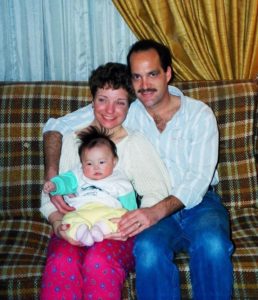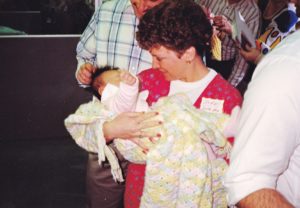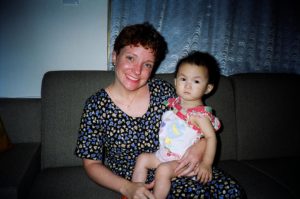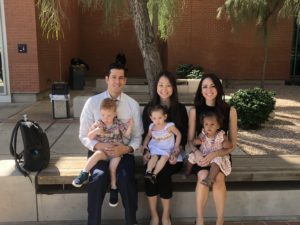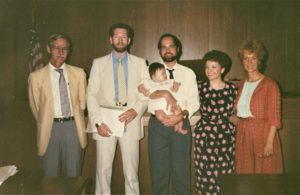Foster care and adoption are both options that can provide children with a loving, supportive, and nurturing environment. Adoption and foster care differ as adoptive parents provide a permanent home to the child, as well as become the legally responsible parents. Foster care is an important part in the process of finding permanent devoted caretakers for children. If you are looking to begin a rewarding experience as a foster parent in Arizona, it is important to understand the process of becoming a foster parent, types of foster care, as well as expectations for foster parents.
Background information on foster care
What is foster care?
Making an informed decision about becoming a foster parent relies on understanding the purpose of foster care and the role you will play as a foster parent. Foster care is considered to be a temporary home for a child. A child typically enters foster care when their birth parents are unable to provide a safe home and need a little extra support to take care of their children. It is important to recognize that children do not enter foster care due to something they have done, but because their birth parents need some additional guidance and assistance. The primary goal of foster care is to reunite the child with his or her birth parents once the birth parents have been provided support and assistance. Once a child enters foster care, he or she is legally placed under the custody of a state agency.
Who can become a foster parent?
There is always a need for foster parents to providing loving homes for children in Arizona. Arizona sets forth a few requirements for those hoping to become foster parents. A foster parent can be single, married, or in a relationship. However, if you are married and living together, both individuals must satisfy the requirements for becoming a foster parent. A foster parent must also be at least 21 years old. To ensure the child’s safety, every adult in the household must pass an FBI and local criminal background check, as well as possess a Level 1 Fingerprint Clearance Card, which can be acquired through the Department of Public Safety.
What are the steps to become a foster parent?
There are six general steps to become a foster parent:
- The first step requires you to complete foster parent pre-service training. This training provides valuable information about those duties required of foster parents. There are 11 online courses, which can be completed at home, as well as 15 hours of in-person instruction. During COVID, you may be able to participate in these mandatory courses online. Check with a foster care agency or Arizona’s Office of Licensing & Regulation for more information.
- The second step requires a medical evaluation conducted by a healthcare professional. A medical form must be completed by your regularly seen doctor or practitioner (e.g., family physician, nurse practitioner, or a psychiatrist if you have been seeing her on a regular basis).
- The third step involves the financial requirements and responsibilities. This step exists to ensure that potential foster parents can meet daily living expenses for a child. These expenses may include clothing, grocery bills, rent, etc. Although foster parents may receive foster care reimbursement payments from the State, it is common for these payments to be delayed initially. Thus, being able to financially provide for a child in the beginning, before these payments may begin, is important.
- The next step revolves around the home study. This process includes participation in a comprehensive interview process. A prospective foster parent must select a foster care licensing agency contracted with the Department of Child Safety to conduct a home study. The home study process involves a series of personal questions asked of prospective foster parents. This personal interview process is intended to ensure foster parents are able to properly care for a child.
- The fifth step (you’re almost done!) involves a Life Safety Inspection (LSI), which guarantees a safe home environment for the child. The home must be free from common safety hazards. To complete this step, it is important to review the LSI Preparation Guide and requirements: CSO- 1601 Preparation Guide and the Pool Guide: CSO-1602 Pool Guide. Both can be found on the DCS’s Form website.
- Finally, foster parents must be lawfully present in the United States. This means that you are a United States citizen or national or a non-citizen authorized by a federal entity or by a court.
Types of foster care
Unlicensed Kinship Care
This form of foster care provides care for a kinship member (family member, friend, teacher, etc.) without a foster care license issued by the Office of Licensing and Regulation. In this situation, the kinship member is caring for a child who is under the custody of the Department of Child Safety, but the kinship person is not licensed by the state as a foster parent. If the case ultimately goes to adoption, it depends as to whether the kinship person will need to become certified to adopt the child. It ultimately depends on the legal relationship between the kinship person and child. For example, in general, a grandparent does not need to become certified to adopt his or her grandchild. However, a cousin may still need to become certified to adopt, even though they are still considered family members. Check with an adoption attorney or adoption agency to find out more information regarding your specific situation.
Kinship parents may benefit from becoming licensed to foster. It may be beneficial to complete the process in becoming a licensed foster parent as you may be eligible for foster care reimbursement payments.
Licensed Kinship Care
In this form of foster care, care is provided to a kinship member under a state-issued foster care license.
Licensed Foster Care
Licensed foster care is considered traditional foster care, involving individuals who satisfy the requirements and training to become a foster parent and looking after a child in DCS’s care and custody.
Respite Foster Care
In this form of foster care, respite caregivers provide short-term care to foster children. This helps give foster parents rest from daily childcare responsibilities.
In-Home Respite Care
In this situation, a caretaker provides care for children in another person’s licensed foster home.
Expectations of DCS for foster parents
General expectations for foster parents
- Treat the children in your home as if they are family
- Understand that the children are with you on a temporary basis
- Support the plan to reunify children with their families
- Interact with the biological family members
- Follow the case plan created by DCS
- Actively participate in meetings that involve the children in your care—school meetings, court hearings, child and family team meetingsetc.
- Be an advocate for the children in your home
Expectations for Licensed Foster Parents
- Continue meeting licensing requirements of the Department of Child Safety’s Office of Licensing and Regulation (OLR)
- Report any changes to your home or living situation to OLR and licensing agency
- Be available and willing to accept a child into your home with limited information
- Be flexible in your preferences and honor the parameters of your license
- Understand your responsibility to assist DCS in providing care to children in foster care
What are children in need of foster care like?
It is important to recognize that children in foster care have experienced trauma. Children are removed from their birth parents’ home at no fault of their own. It is also necessary to remember that children who have experienced trauma may have difficulty communicating their feelings with words. Children may resort to communicating their feelings through different behaviors, such as silence, anger, and tantrums.
What are the current placement needs in Arizona?
The greatest need for foster homes in Arizona is for children between the ages of 13-17. There is also a great need for foster homes for children between the ages of 9-12. A common misconception is that Arizona has a high need for foster homes for infants. However, the need for foster homes for infants accounts for less than 1% of Arizona’s total need.
Foster care agencies in Tucson and Phoenix
Tucson agencies:
- A Circle Together: https://acircletogether.com/
- A Place to Call Home: http://www.tocallhome.com/
- Arizona’s Children Association: https://www.arizonaschildren.org/
- Arizona Baptist Children’s Services: https://abcsfostercare.com/
- Casa de los niños: https://www.casadelosninos.org/
- Catholic Community Services of Southern Arizona, Inc.: http://www.ccs-soaz.org/
- Christian Family Care: https://cfcare.org/
- GAP Ministries: https://gapmin.com/
- Grace Retreat: https://www.graceretreatfostercare.org/
- Intermountain Centers: https://intermountaincenters.org/
- La Paloma Family Services: https://www.lapalomakids.org/
- RISE: https://riseservicesinc.org/services/arizona/foster-care/
- VisionQuest Foster Care: https://www.vqfostercaretucson.com/
Phoenix agencies:
- A Circle Together: https://acircletogether.com/
- A New Leaf: https://www.turnanewleaf.org/
- A Place to Call Home: http://www.tocallhome.com/
- AGAPE Adoption Agency: https://www.agapeaz.org/
- Aid to Adoption of Special Kids: https://www.aask-az.org
- Arizona Baptist Children’s Services: https://abcsfostercare.com/
- Arizona Children’s Association: https://www.arizonaschildren.org/
- Arizona Faith and Families: faithandfamilies.com
- Catholic Charities Community Services: https://www.catholiccharitiesaz.org/phoenix/foster-care-licensing
- Child Crisis Arizona: https://childcrisisaz.org/
- Christian Family Care: https://cfcare.org/
- Hope Community Services: https://hcs-az.org/
- HRT, Inc.: http://hrtaz.com/
- Intermountain Centers: https://intermountaincenters.org/
- Love of Children: https://loveofchildren.org
- Onward Hope Inc.: https://onwardhope.org/
- RISE: https://riseservicesinc.org/services/arizona/foster-care/
- Southwest Human Development: https://www.swhd.org/programs/child-welfare/foster-care-and-adoption/
If you have any questions about the foster care process or adopting through foster care, call Jessica Graves at 520-468-3838 or email her at jessica@jessicagraveslaw.com to find out more. Jessica has represented hundreds of foster and kinship parents in their adoptions of their foster children. Jessica also accepts payments through Arizona Department of Child Safety Subsidy.
